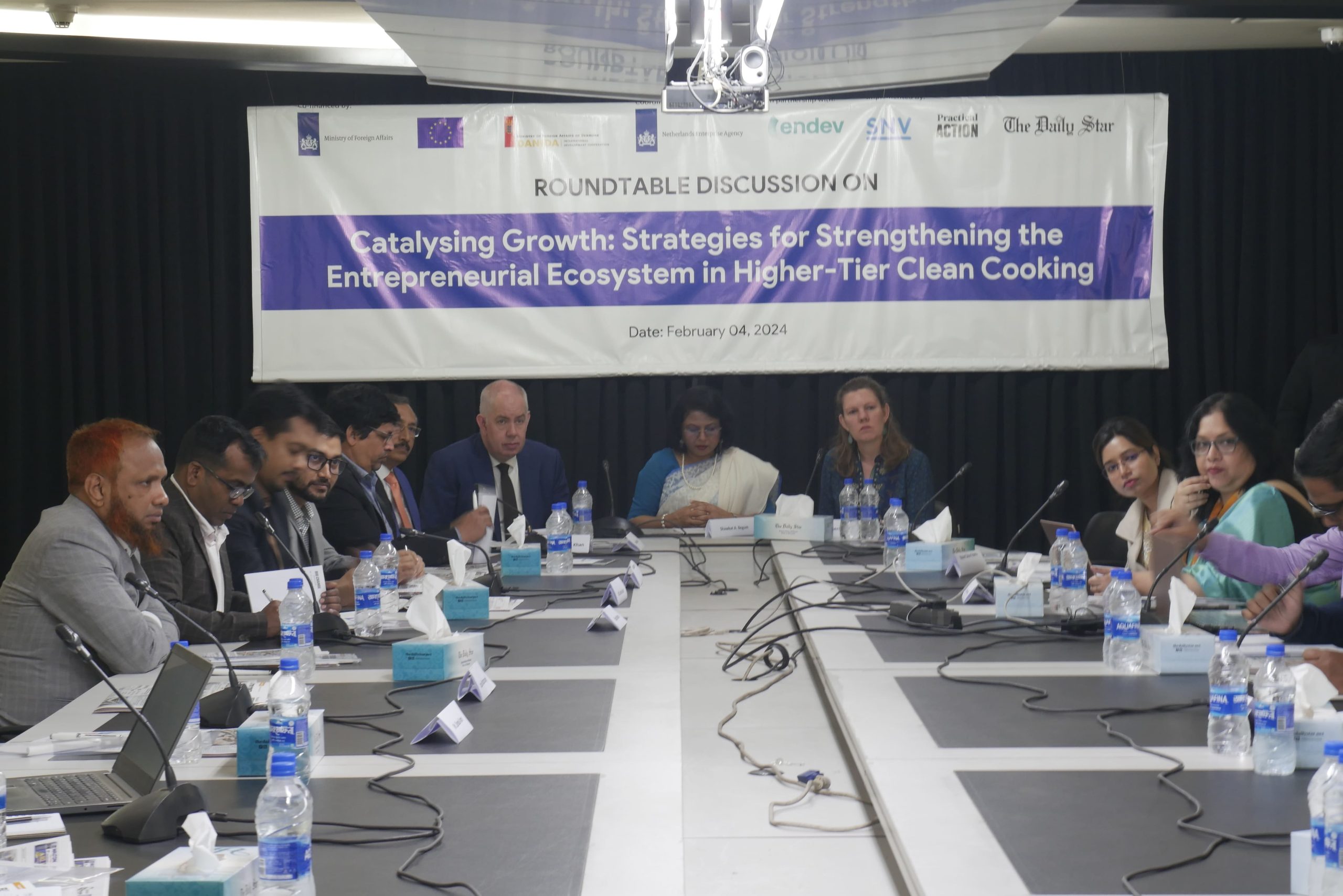
- Date
- 26th February 2024
- Categories
- Clean Cooking, General
By The Daily Star, Bangladesh.
Speakers at a roundtable on 4th February 2024, opined Bangladesh should focus more on clean and modern cooking technologies considering the health hazards to women and children, and the environmental impact posed by traditional methods.
“Clean cooking is not only a technical shift, but also a very critical step towards a sustainable and healthier future for communities,” said Ismène RAC Stalpers, Country Director at SNV Bangladesh.
“With over 30 million people in Bangladesh still dependent on firewood, we need to think about how to move towards renewable energy,” she said.
“We are working to foster the growth and sustainability of a commercial clean cooking sector, particularly targeting businesses in the high-tier category. We believe that we can strengthen the ecosystem in Bangladesh through e-cooking (electric cooking). To further highlight, gender equality has been at the centre of our approach,” Ismène added.
The Daily Star organised the roundtable titled “Catalysing Growth: Strategies for Strengthening the Entrepreneurial Ecosystem in Higher-Tier Clean Cooking”, in association with Practical Action and SNV Bangladesh at The Daily Star Centre.
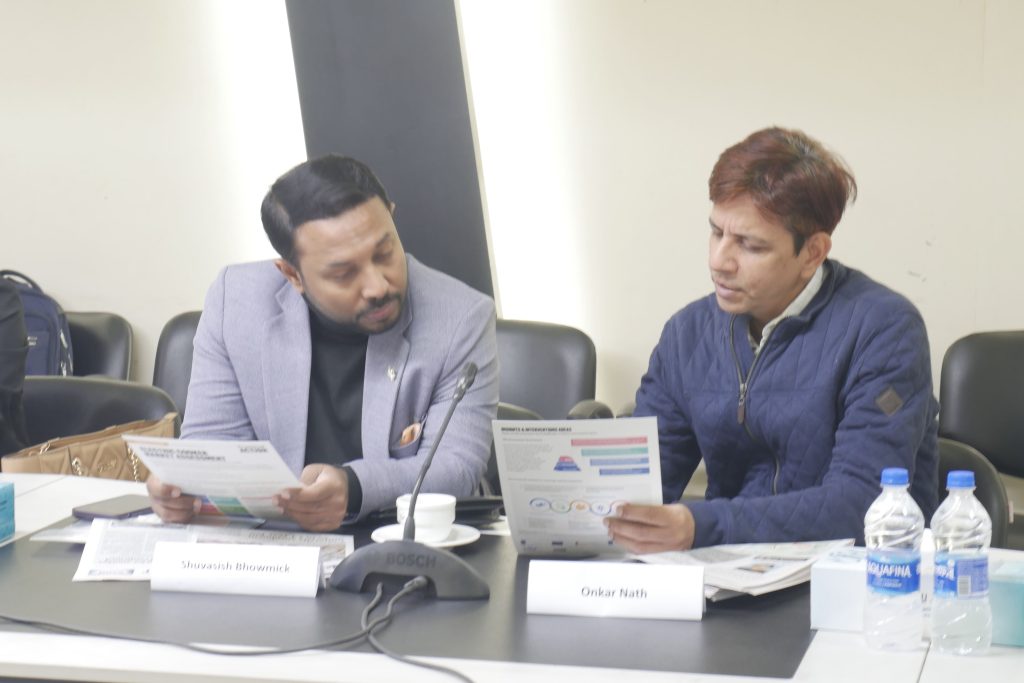
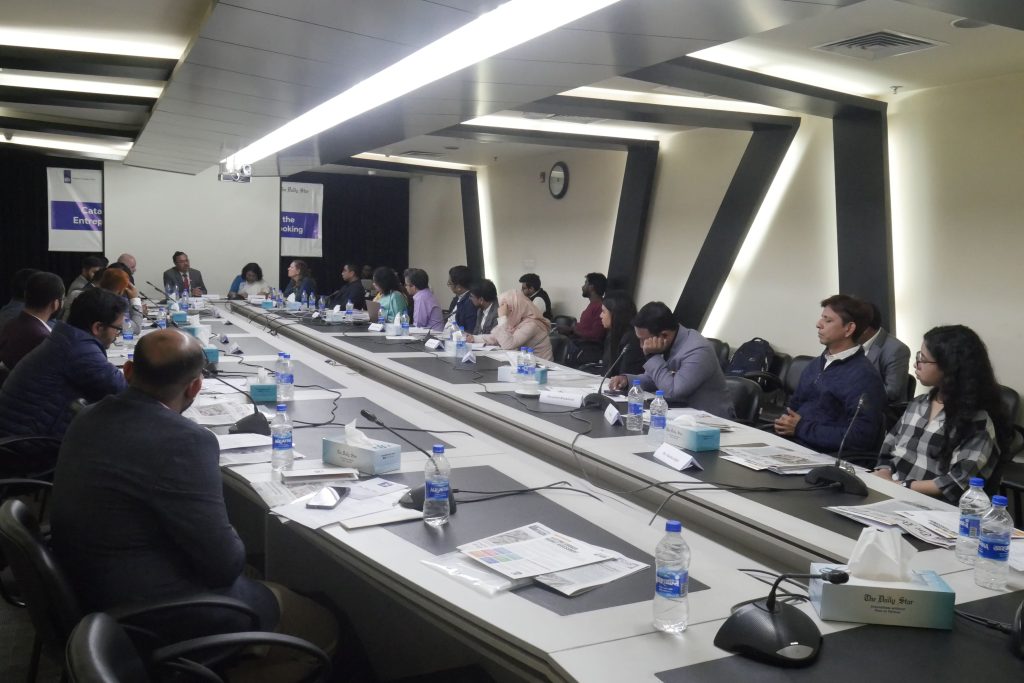
Nirod Chandra Mondal, Joint Secretary, Renewable Energy, Power Division of the Ministry of Power, Energy, and Mineral Resources, pointed out the challenges for Bangladesh in this context.
“Our present electricity generation mix is mostly gas-based. About 50 percent is gas-based generation, while the rest is from coal, diesel, or heavy fuel oil, with some from renewable energy,” he said.
“If you want to make the countries shift to clean cooking processes, then you have to convert the entire power generation mix from fossil fuel to renewable energy,” he said.
“If we can generate 40 percent of electricity from renewable sources, it will significantly pave way for a clean cooking system. About 80 percent of our people live in rural areas. If we convert solar energy for cooking purposes, then it will be a great achievement.” Mondal added.
“Access to clean, affordable, and secure energy is crucial for sustainable development. Even though the world has made significant progress towards sustainable energy for all, about 4 billion people still lack clean and modern cooking fuels and technologies”, said Edwin Koekkoek, Team Leader, Green Inclusive Development and Social Protection, Delegation of the European Union to Bangladesh.
“We are starting a project on regional energy connectivity in South Asia,” he added.
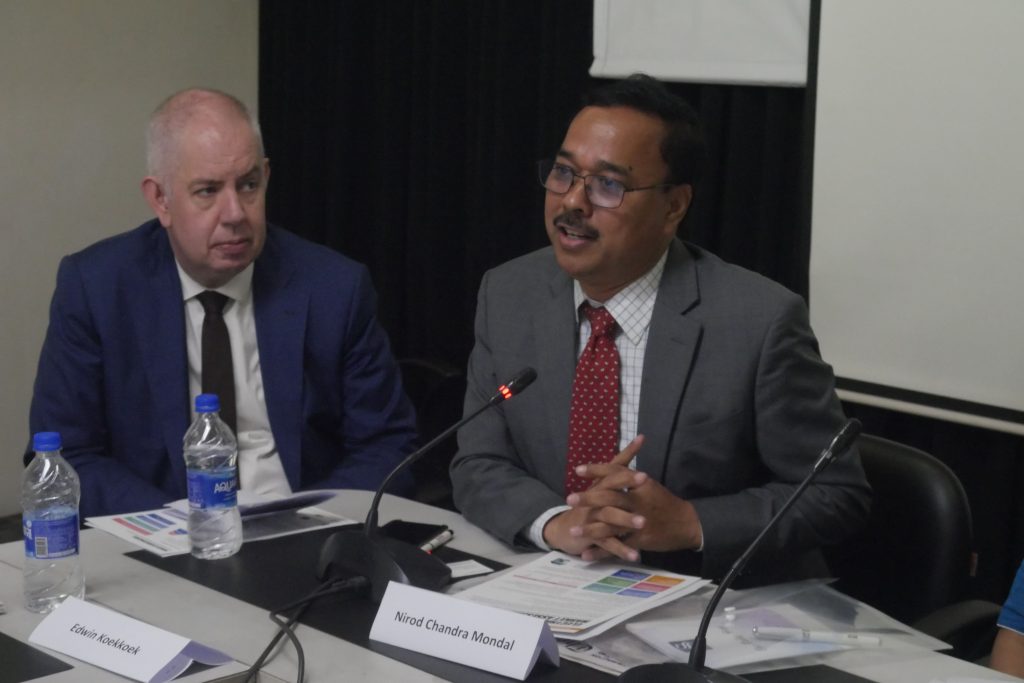
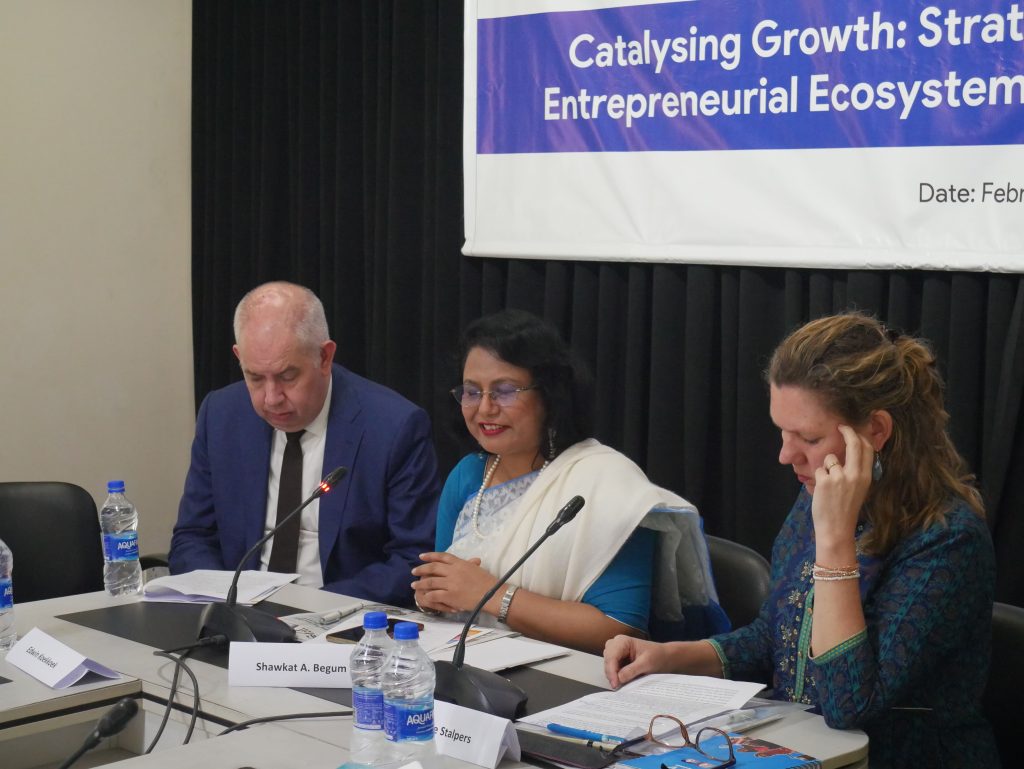
Shawkat A. Begum, Bangladesh Country Director at Practical Action, highlighted the health risks faced by women who use traditional cooking methods, and emphasised the necessity of transitioning to clean cooking for their wellbeing and for the overall environment.
A presentation on the SEE-CC programme and its components was made by the Practical Action and SNV teams at the event.
Dr Bianca van der Kroon, Programme Manager, SEE-Clean Cooking at the Department of International Development, Netherlands Enterprise Agency; representatives from leading home appliance companies in Bangladesh; and Ishrat Shabnam,
Programme Manager, Private Sector- Social Protection and Green Energy Transition, Delegation of the European Union to Bangladesh, also spoke among others.
………………………………………..
Photos by Shanaj Parvin Jonaki, Communication Officer, Bangladesh.